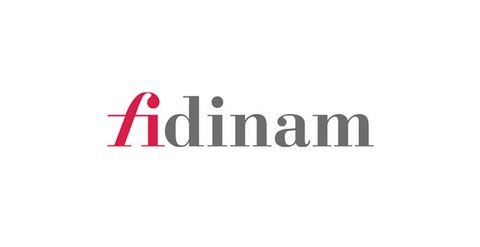Companies news
Fidinam: New foreign sourced income exemption ('FSIE') for passive income (Part 1)

Hong Kong is one of the best jurisdictions in Asia for foreign groups managing assets and investments in the region. The city is well located, tax efficient, hosts one of the world's largest financial centres, has a robust legal framework, and relies on a skilled workforce.
To remain an attractive financial hub, Hong Kong tax system keeps embracing international standards, among which OECD norms regarding the taxation of passive income (i.e. dividends, interest, royalties, and capital gains). This became necessary, as earlier in October 2021, Hong Kong was added to the “grey list” of the European Union, as non-cooperative jurisdiction for tax purpose, due to the former lack of taxation of foreign passive income. To remedy this situation, Hong Kong government is about to adopt a bill amending the ‘Foreign Sourced Income Exemption’ regime (‘FISE’) for passive income. The draft legislation shall be introduced to the Legislative Council by the end of October 2022, for a new regime expected to become effective from the 1st of Jan 2023, with no grandfathering arrangement (the ‘New Regime’).
Under the New Regime, the four types of passive income (i.e. dividends, interest, royalties, and capital gains) received in Hong Kong by the constituent entity of a multinational enterprise (MNE), regardless the revenue or assets size of this MNE, will be deemed taxable and subject to Hong Kong Profits Tax (at the standard rate of 16.5%).
Individual taxpayers, standalone local companies with no operation outside Hong Kong in the form of permanent establishments, as well as local groups without overseas constituent entities, shall all fall outside the scope of this New Regime.
Besides, 3 types of exemptions will remain available, depending on the nature of the offshore passive income remitted to Hong Kong:
Passive Income Categories | Potential Exemption of Profits Tax |
Interest | Economic substance exemption |
Dividends & Capital Gains | Economic substance exemption; or Participation exemption |
IP Income (Royalties) | Nexus exemption |
- Economic Substance Exemption
- non-IP income (interest, dividends, and disposal gains) shall remain exempted from Hong Kong Profits Tax if the receiving company can demonstrate having enough economic substance in Hong Kong. This will generally imply having an office, hiring an adequate number of qualified employees, and incurring an adequate volume of operating expenditures, all in Hong Kong. As no minimum threshold is defined, each situation will need to be assessed on a case-by-case basis, depending on the relevant activities carried by the entity to derive such passive income. As such, a pure equity holding company, will be able to undergo a reduced substantial activities test. While other types of entities (which are not pure holdings), could only claim for exemption if demonstrating that all strategic decisions, management and risks factors are assumed locally, in Hong Kong. Interestingly enough, the regulator adopts a pragmatic approach and allows outsourcing of economic activities to third parties, as long as that the taxpayer manages to demonstrate adequate monitoring of the outsourced activities conducted in Hong Kong.
2. Participation Exemption
Regardless the economic substance requirements described above, offshore dividends and capital gains shall be exempted from Hong Kong Profits Tax, if:
a) The investor is a Hong Kong-resident or a non-Hong Kong resident with a permanent establishment in Hong Kong;
b) The investor holds at least 5% of the shares or equity interest in the investees from which it derives passive income; and
c) No more than 50% of the income derived by these investees is passive income.
Several anti-abuse rules shall restrain the scope of the Participation Exemption (including the switch-over rule, the main purpose rule, and the anti-hybrid mismatch rule), in order to avoid schemes circumventing the New Regime.
- Nexus Exemption
- exemptions will be granted for offshore passive income, as long as the underlying IP assets are patents or functionally equivalent to patents. Contrarywise, marketing-related IP assets, such as trademarks and copyrights will not be entitled to Profits Tax exemption. Under the nexus approach, only a certain ratio of offshore IP income will be deemed ‘qualifying expenditures’ exempted from Hong Kong Profits Tax. These will only include research & development (‘R&D’) expenses which are directly connected to the assets (excluding acquisition costs), and only up to a reasonable proportion of the overall expenditures incurred by the taxpayer to develop such IP assets.
More details are expected upon ratification of the bill, and adoption of practical guidelines by the Inland Revenue Department (‘IRD’). Clarifications would be very much welcome by the professional community in Hong Kong, in order to be able to plan ahead to implement the New Regime for 2023.








